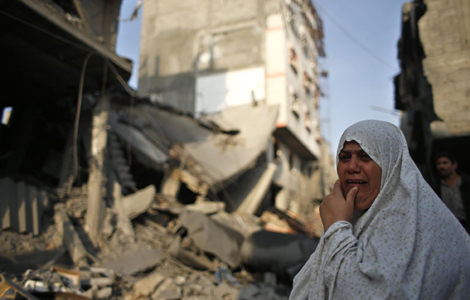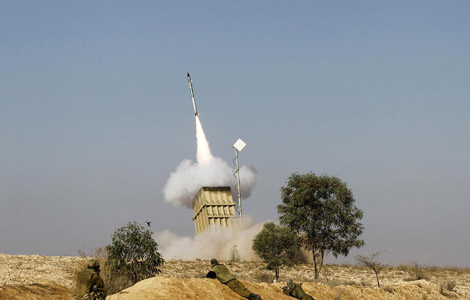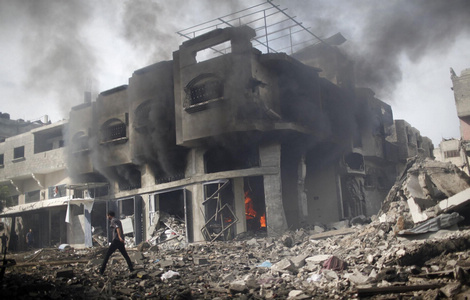
1) Which topics will the leaders from the two countries talk about during the visit? What do you think of the current level of China-Thailand ties?
During Prime Minister Yingluck Shinawatra's visit to China in April, Thailand and China agreed to elevate their relations from a "strategic cooperation partnership" to a "comprehensive strategic cooperation partnership," which reflects the deepening trust and confidence between our two countries. Premier Wen Jiabao's visit to Thailand in November 2012, the first for a Chinese Premier in over 10 years, is yet another milestone in our bilateral relations and comes as Premier Wen is set to step down from office and make way for a new generation of leaders. Despite the change in leadership, I'm very optimistic about the future of Thailand-China relations, which will continue to grow stronger.
During Premier Wen's visit, he and Prime Minister Yingluck Shinawatra will discuss a wide range of topics, be it political, economic, social and cultural. Above all, the Prime Minister will congratulate Premier Wen on China's remarkable achievements under the current leadership, especially in terms of China's rapid economic and social development. The Prime Minister will also congratulate Premier Wen on the outcome of the 18th National Congress of the Communist Party of China, resulting in a stable transition of leadership who in turn will set the future trend of China's development.
The two leaders are expected to reach agreements which may increase cooperation in areas stressed during both Vice-President Xi's visit to Thailand in December 2011 and Prime Minister Yingluck's visit to China in April 2012, namely high-speed railways, renewable energy, water management, and human resources development. Details of those agreements will be revealed in due course.
Thailand and China can continue to enhance cooperation in the areas of trade, investment and tourism. The volume of trade and investment between our two countries has significantly increased over the years. However, the global economic crisis has affected our two-way trade, resulting in only a 4.4 percent increase in terms of trade volume in the first three quarters of 2012 compared to a 22.3 percent increase in 2011. During the Prime Minister's official visit to China in April 2012, both sides set ambitious targets in terms of expanding trade, investment, and tourism. In this regard, both sides wish to increase the volume of bilateral trade to $100,000 billion by 2015 or an increase of 15 percent per year, increase the rate of investment by 10 percent per year, and increase the number of Chinese tourists visiting Thailand at a rate of 20 percent per year.
2) What are the emphases for your term here in Beijing?
I've been assigned to our missions in China several times. In fact, my first overseas assignment was in Beijing. I was also Consul-General to our missions in Kunming and Shanghai. Throughout my experience in China, my primary goal was to always contribute to the strengthening of Thailand-China bilateral relations and cooperation. As the current Thai Ambassador to China, I place high importance in promoting the frequent exchange of visits between our respective countries, which I believe will create a better understanding between our two countries and populations and in turn will lead to closer cooperation. At the same time, I also stress the importance of "public diplomacy", especially through outreach programs, cultural and educational exchanges and people-to-people contact. I believe that, through such channels, Thai and Chinese people will better appreciate and understand each other at a more personal level and foster a sense of friendship between our two peoples. In this regards, Premier Wen is expected to attend the opening ceremony of China's cultural center in Thailand during his visit in Bangkok. Thailand is also planning to establish its own cultural center in China. These centers will serve as physical reminders of our respective countries' tradition and heritage, but even more significantly, we hope that these cultural centers will serve as an important link between our two cultures and peoples through the organization of various activities and events, furthering the enduring partnership between our two countries.
3) We've noticed a great increase of Chinese tourists in Thailand in recent years. What do you have to say about this?
In 2011, 1.7 million Chinese tourists visited Thailand and we expect to reach our target of 2 million visitors this year. The large number of Chinese tourists visiting Thailand reflects not only China's strong economy but also the confidence and trust the Chinese people have in Thailand.
Chinese tourists visit Thailand for the same reason that other people visit the country, and that is to experience all that we have to offer: Thai food, beautiful temples, natural wonders like our sandy beaches and green mountains, great shopping centers, our world-renowned hospitality and our unique traditions and culture that constantly charm our guests, just to name a few. In other words, we have a little bit of everything for everybody.
We're also determined to improve our tourism sector with new forms of tourist attractions to fit the changing demands of the Chinese people. In addition, the Thai government has pledged to increase the safety and security of tourists in Thailand.
4) Which role do you think China plays in the development of Thai economy?
China plays an important role. As the largest economy in Asia and the second largest in the world, China is an indispensable economic partner. China is our number one export market and number two trade partner. It also ranks second in terms of total investment value in Thailand. Recent investment projects by Chinese companies in Thailand, such as rubber and car plants in Rayong province, are a reflection of the ongoing cooperation between Thailand and China, which continues to expand and grow.
5) How will Thailand deal with the soldiers involved in the death of 13 Chinese sailors last year on the Mekong River? Besides joint patrols over the Mekong, what else can China and Thailand do to maintain the safety of the region?
The Thai Government stands ready to work closely with the Chinese authorities to bring justice and fairness to the parties concerned. As for the soldiers suspected of being involved in the incident, their case has been brought to the court and the judicial process is ongoing. Thailand will host an international conference on water management in January 2013 in Chiang Rai province, and has invited the five foreign ministers from the Mekong countries, namely China, the Lao People's Democratic Republic, Cambodia, Myanmar and Vietnam. The meeting will gives us an opportunity to discuss issues of common concern including maritime security and safe passage along the Mekong River.
6) How can Thailand contribute as a coordinator to promote the China-ASEAN ties? What do you think that China should do to improve its ties with ASEAN?
As the current coordinator of ASEAN-China relations, Thailand stands ready to work closely with China and ASEAN member states to bring about closer cooperation in all areas.
During the three-year term, Thailand is determined to continue the progress and momentum as well as to enhance understanding and strengthen the relations between ASEAN and China through close coordination and regular consultation.
Thailand always supports the constructive role of China in ASEAN, and hopes that China will continue to enhance the ASEAN-China partnership, which is comprehensive in scope, encompassing cooperation in many important areas, including political security, free trade areas, development, education, and cultural and people-to-people exchanges. Since China became ASEAN's dialogue partner, it has helped ASEAN promote peace, security and development, especially with its financial contributions to various ASEAN development funds, which has led to the improvement of lives and the well-being of people in the region.







